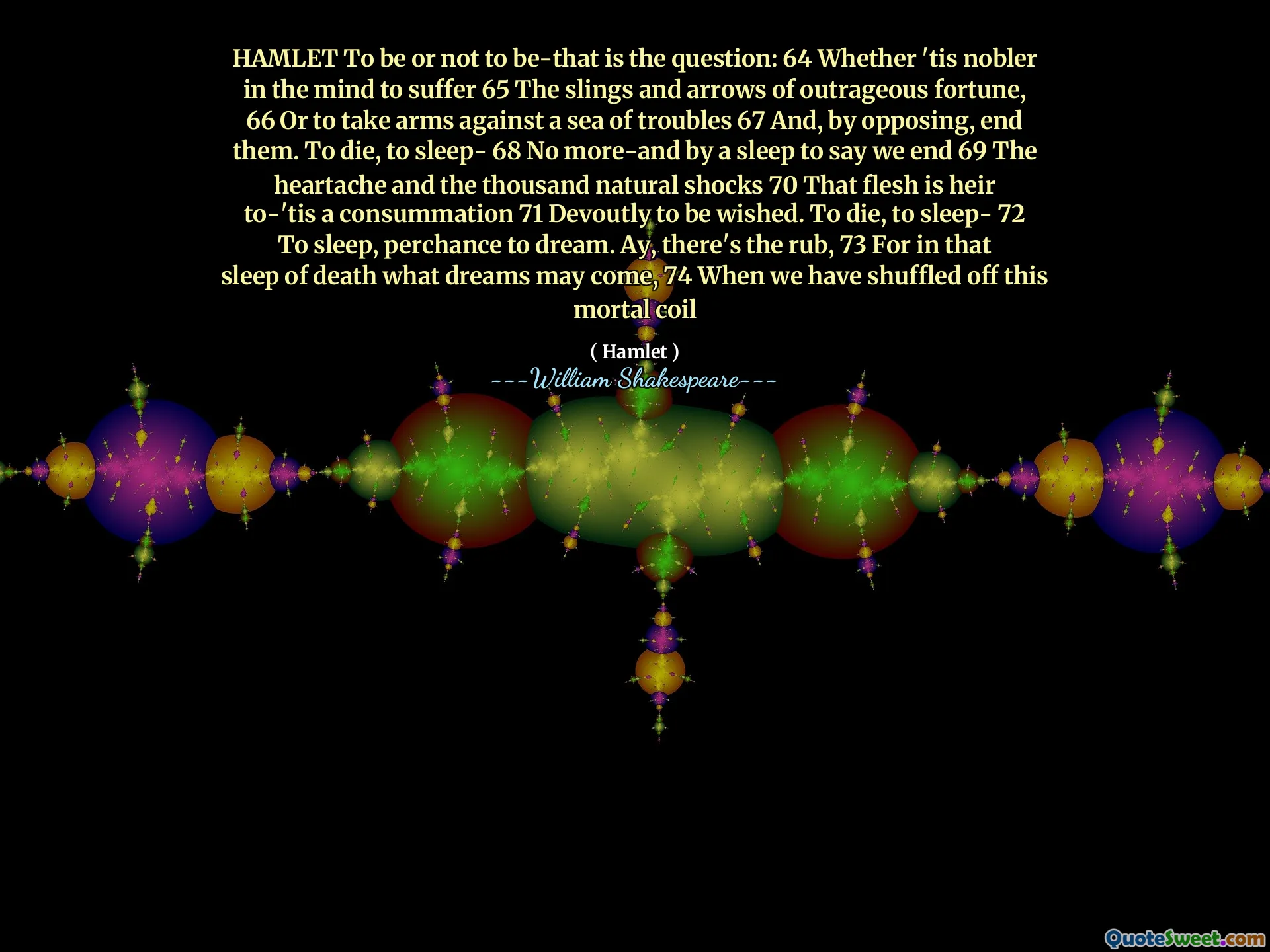
HAMLET To be or not to be-that is the question: 64 Whether 'tis nobler in the mind to suffer 65 The slings and arrows of outrageous fortune, 66 Or to take arms against a sea of troubles 67 And, by opposing, end them. To die, to sleep- 68 No more-and by a sleep to say we end 69 The heartache and the thousand natural shocks 70 That flesh is heir to-'tis a consummation 71 Devoutly to be wished. To die, to sleep- 72 To sleep, perchance to dream. Ay, there's the rub, 73 For in that sleep of death what dreams may come, 74 When we have shuffled off this mortal coil
In Hamlet's famous soliloquy, he contemplates existence and the nature of suffering. He weighs the nobility of enduring life's hardships against the desire to fight against them, pondering whether to choose life despite its challenges or to seek an end to his struggles through death. The phrase "to die, to sleep" suggests a longing for peace, but it also raises questions about what lies beyond death, introducing uncertainty and fear about the unknown that may come with it.
Hamlet's reflection on death reveals a deep internal conflict. While he yearns to escape the heartaches and pains of life, he is simultaneously apprehensive about the possible dreams or consequences of death. This duality captures the essence of human struggle: the desire for relief from suffering is counterbalanced by the fear of what may come after. Ultimately, this soliloquy lays bare Hamlet's profound existential dilemma.








